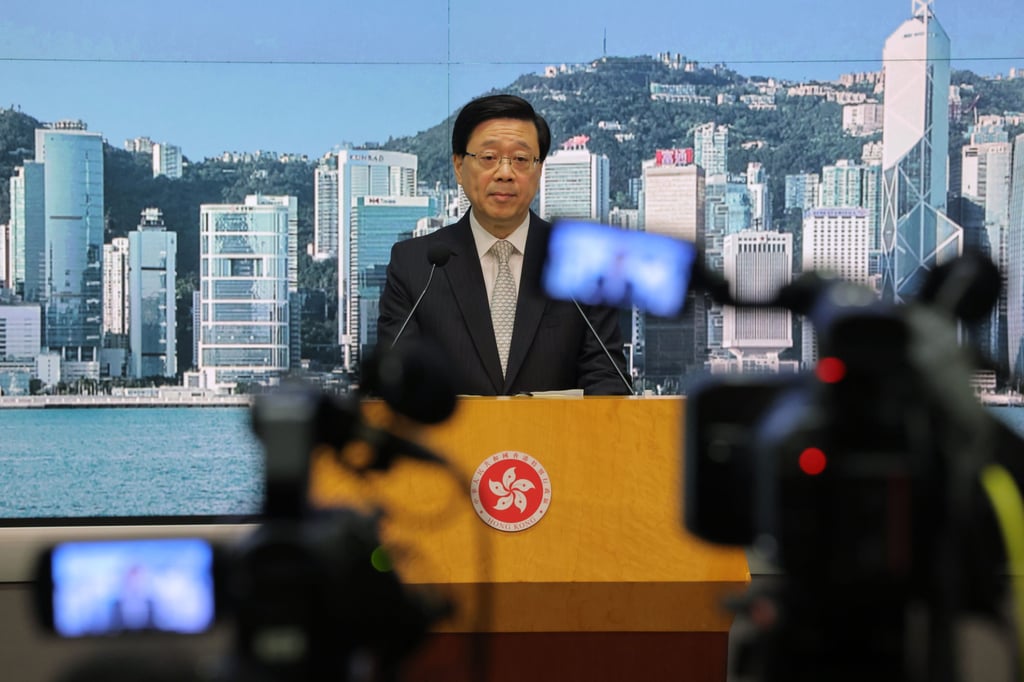Advertisement
Hong Kong national security: mainland China’s life sentence on US-based city resident for spying a reminder of lurking risks in society, John Lee warns
- Chief executive stops short of providing details of detainee in mainland China and whether administration had offered help under reciprocal notification mechanism
- He sounds alarm on ‘black violence’, referring to 2019 anti-government unrest, reminding public to stay vigilant also to soft resistance
Reading Time:2 minutes
Why you can trust SCMP
2

A life sentence handed down by China to a US-based Hong Kong permanent resident over spying charges was a reminder that the city should stay vigilant to national security risks lurking in society, Chief Executive John Lee Ka-chiu warned on Tuesday.
But the city leader stopped short of offering more details on the case concerning John Shing-wan Leung, such as whether his administration had provided any form of help for the 78-year-old resident.
“[Regarding] any person who is arrested by law enforcement agencies in mainland China, there is a reporting mechanism for such arrests to be related to Hong Kong authorities. This has been working well,” Lee told the media.
He was referring to the reciprocal notification mechanism struck by both sides in 2017, which he said would allow family members of local detainees across the border to understand the situation, take necessary actions or seek help from city authorities.
Advertisement
Lee was quick to add that the case of Leung – a US-based Hong Kong permanent resident sentenced to life in prison on Monday after being convicted by the Suzhou court on spying charges in China – was a reminder that national security risks could be lurking in society.

“We have stressed time after time that while Hong Kong’s situation is generally stable now, we should never lower our guard over national security risks and must stay vigilant,” he said.
Advertisement
“The ‘black violence’ and Hong Kong’s version of the colour revolution in 2019 should be our alarm bell reminding us to keep an eye on long-term risks,” he warned, using the term by authorities to describe the anti-government protests four years ago.
Advertisement
Select Voice
Choose your listening speed
Get through articles 2x faster
1.25x
250 WPM
Slow
Average
Fast
1.25x